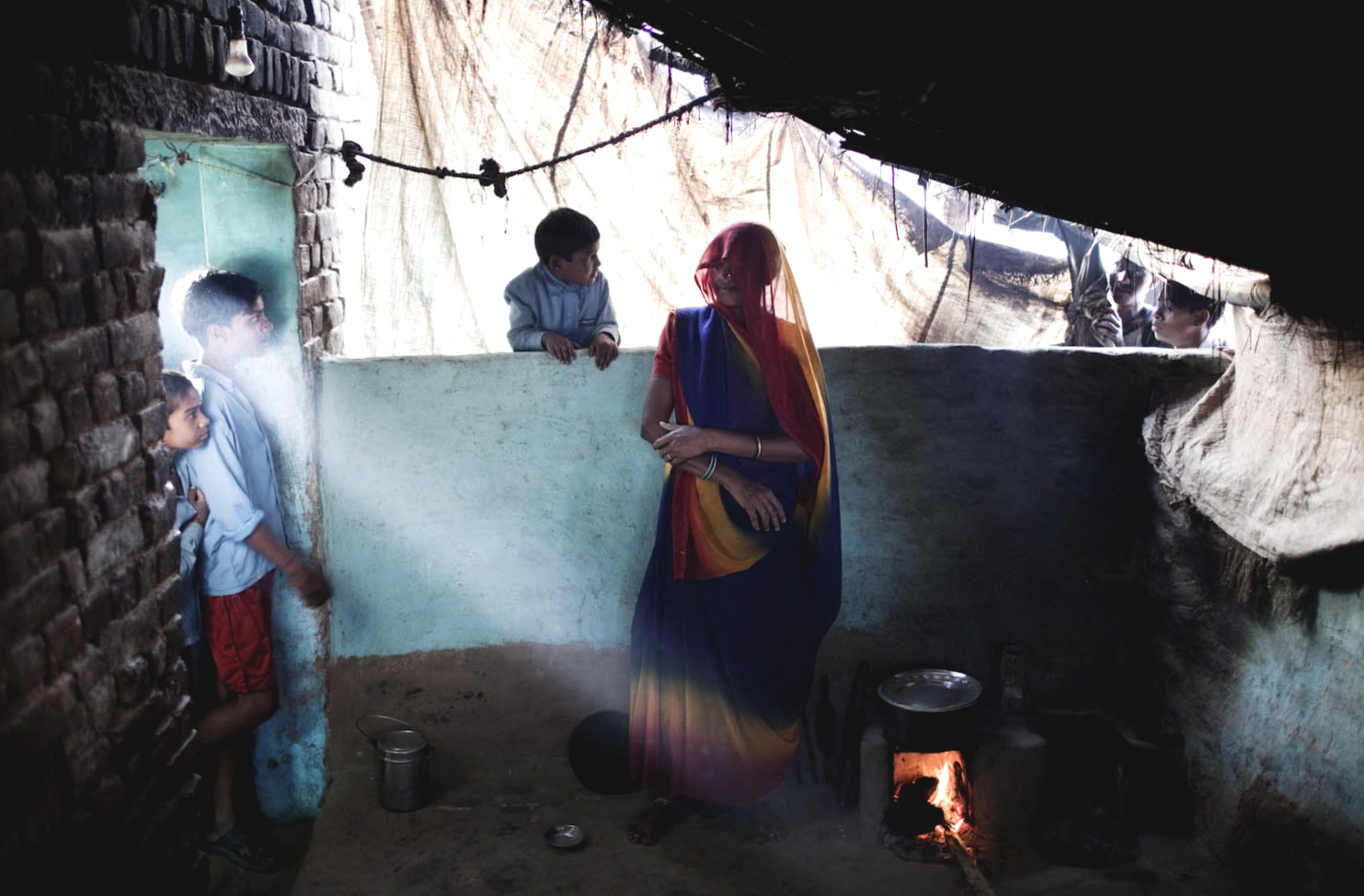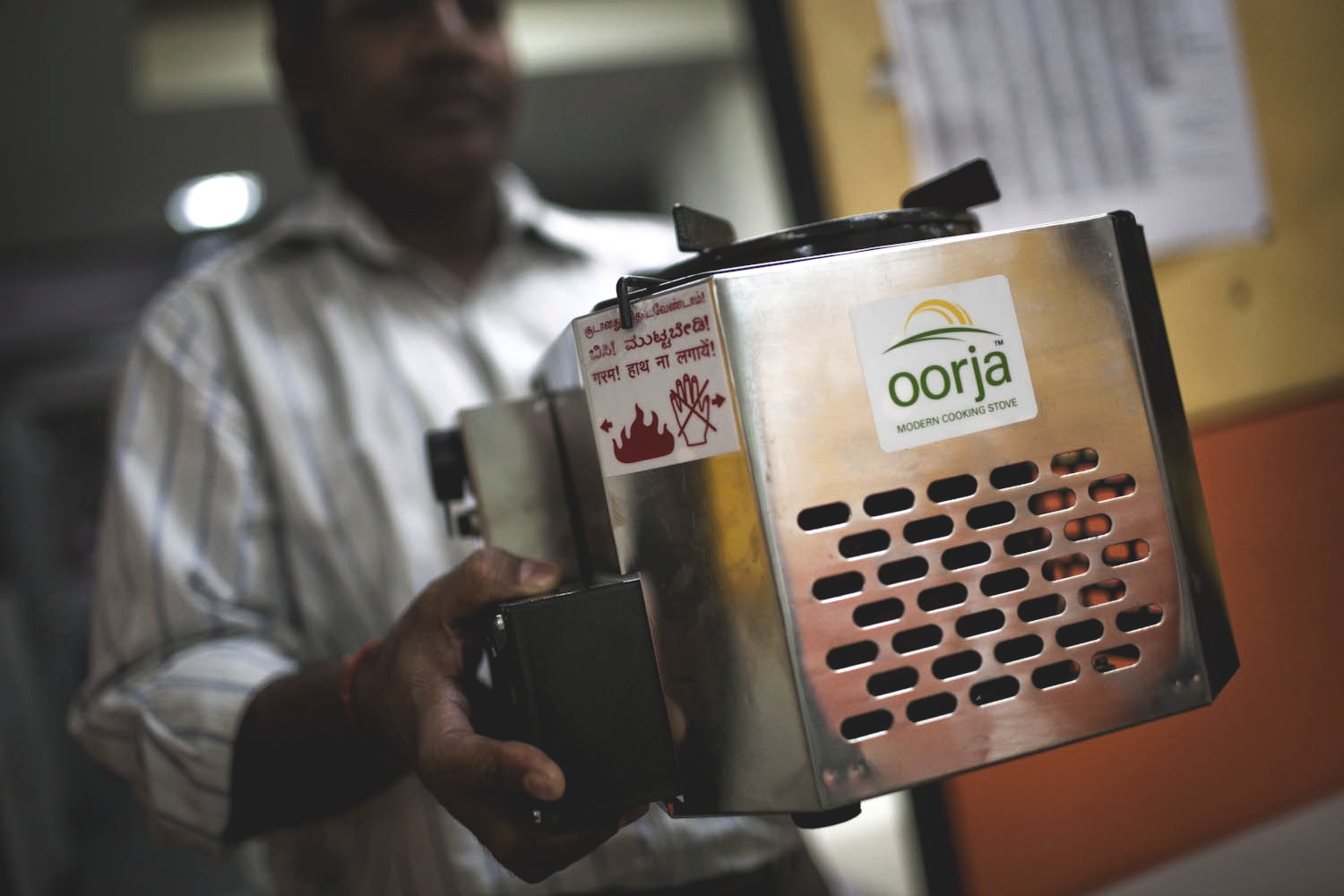Project Surya and Economic Development: More Productivity, More Opportunity
 For both women and children, much of the day is spent tending indoor fires, which results in exposure to harmful pollutants (photo credit: Adam Ferguson).
For both women and children, much of the day is spent tending indoor fires, which results in exposure to harmful pollutants (photo credit: Adam Ferguson).An important co-benefit of Project Surya in the regions where it is implemented is its contribution to economic development. Project Surya will contribute to economic development in three key ways.
Public Health
First, the improvement in pubic health brought about by decreased exposure to indoor air pollution will boost productivity. The project's goal of increasing efficiency and reducing pollution from household renewable fuel use will contribute to better health, which in turn contributes to better school attendance, work attendance, and job performance. Some estimate as many as 1.2-1.6 billion work days are lost to indoor air pollution induced respiratory illness in India, for example - a cumulative loss of wages that significantly impacts already strained household budgets. There is no comparable estimate of  Time spent gathering fuel is time not spent on education and economic uplift (photo credit: Adam Ferguson).school days lost to colds, asthma and other respiratory illness, but the figures on child mortality suggest that the impact is not trivial. Every school day lost is a missed opportunity to build human capital and prospects for moving out of poverty.
Time spent gathering fuel is time not spent on education and economic uplift (photo credit: Adam Ferguson).school days lost to colds, asthma and other respiratory illness, but the figures on child mortality suggest that the impact is not trivial. Every school day lost is a missed opportunity to build human capital and prospects for moving out of poverty.
 Time spent gathering fuel is time not spent on education and economic uplift (photo credit: Adam Ferguson).school days lost to colds, asthma and other respiratory illness, but the figures on child mortality suggest that the impact is not trivial. Every school day lost is a missed opportunity to build human capital and prospects for moving out of poverty.
Time spent gathering fuel is time not spent on education and economic uplift (photo credit: Adam Ferguson).school days lost to colds, asthma and other respiratory illness, but the figures on child mortality suggest that the impact is not trivial. Every school day lost is a missed opportunity to build human capital and prospects for moving out of poverty.More Time for Work and School
Second, the decreased amount of time spent (mainly by women and children) searching for biomass fuels such as wood, dung, crop residues will give women more control over their time, their work, and their family's economic uplift. Children, likewise, will have more time - time they can spend in school, giving them a chance at a brigher future.
 Project Surya will support and enable local entrepreneurship in clean energy (photo credit: Adam Ferguson).
Project Surya will support and enable local entrepreneurship in clean energy (photo credit: Adam Ferguson).Third, Project Surya will also demonstrate models for local entrepreneurship in fuel collection, processing, and household services, as well as ensure that community businesses are involved in building, distributing and/or maintaining the cleaner technologies. Our analysis of Indian survey data indicates that households already expend significant resources (human and financial) on fuel and stoves, this can be the building block for small businesses that contribute to much-needed non-farm employment.
